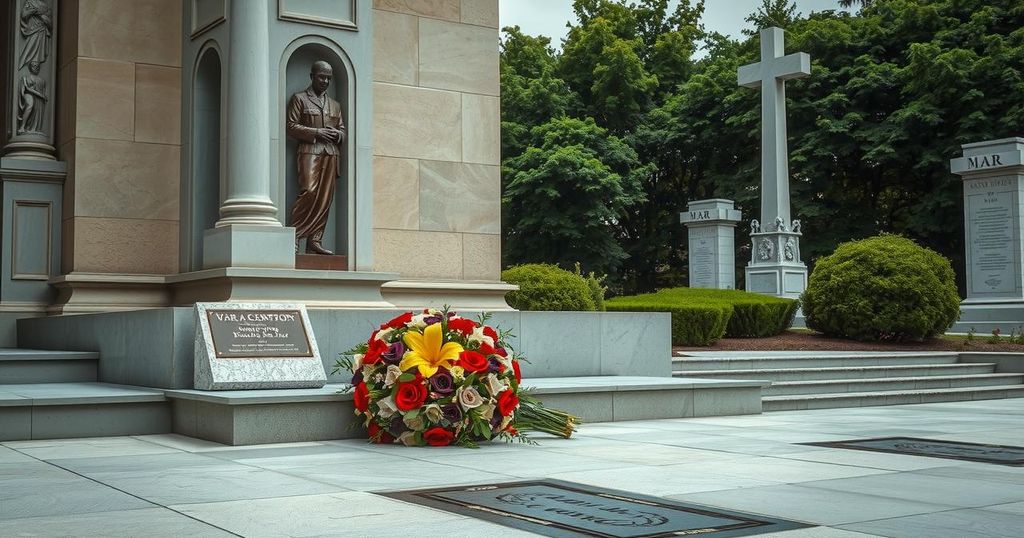Uzbekistan’s President Commemorates 80th Victory Day in Moscow
Uzbekistan’s President Mirziyoyev attended the 80th Victory Day celebrations in Moscow, where global leaders commemorated the sacrifices of World War II. Uzbekistan’s significant wartime contributions were recognized, with nearly 2 million sent to front lines and over 538,000 lost. The country’s humanitarian role also shone, having sheltered evacuees and supported the war effort. The ceremonies included tributes at the Tomb of the Unknown Soldier and emphasized a commitment to honor wartime sacrifices.
In Moscow, President Shavkat Mirziyoyev of Uzbekistan participated in the notable ceremonies commemorating the 80th anniversary of Victory in World War II. This event, held on May 9, was marked by a grand Victory Parade at Red Square, following an official invitation from the Russian Federation. Leaders from numerous countries, including China, Brazil, and Egypt, joined Mirziyoyev on this significant occasion, emphasizing global unity in remembrance of history’s sacrifices.
The ceremony served as a tribute to the bravery, sacrifice, and resilience of millions who fought against fascism during the war. Uzbekistan contributed notably to the war effort; with a population of around 6 million at the time, nearly 2 million Uzbeks were sent to the front lines. The conflict claimed the lives of over 538,000 Uzbeks, with an additional 158,000 veterans reported missing.
Uzbek soldiers and officers received considerable acknowledgment for their valor. More than 214,000 Uzbeks were honored with state awards, with 301 recognized as Heroes of the Soviet Union. Additionally, 70 UzbeK soldiers were distinguished with various degrees of the Order of Glory, showcasing their contributions and sacrifices.
Uzbekistan’s role extended beyond the battlefield. The republic managed to host over 170 evacuated enterprises, whilst supplying essential goods required by the front lines, including food, clothing, medicines, and armaments. During that tumultuous period, Uzbekistan also became a refuge for over 1.5 million evacuees, amongst whom were approximately 250,000 children who had lost their families to the war. This humanitarian approach during trying times continues to garner international acclaim.
Emphasizing the importance of acknowledging wartime sacrifices, President Mirziyoyev affirmed Uzbekistan’s commitment to remembering those who fought. He noted the significance of Victory Park in Tashkent, which stands as a national tribute to both front-line and home-front contributors to the victory.
After the parade, President Mirziyoyev participated in a solemn ceremony alongside Russian President Vladimir Putin and other dignitaries. Together, they laid floral tributes at the Tomb of the Unknown Soldier situated in Alexander Garden, a poignant reminder of the countless lives lost, including many from Uzbekistan.
The evocative ceremony ended with a moment of silence, followed by a ceremonial march led by an honor guard and accompanied by a military band. This day not only celebrated the past but also fostered a spirit of remembrance that binds nations together, reflecting on both suffering and resilience during the war.
In summary, President Mirziyoyev’s attendance at the 80th Victory Day anniversary in Moscow highlights Uzbekistan’s significant contributions during World War II, both in terms of human sacrifice and humanitarian efforts. The event served as a powerful reminder of the resilience of nations in times of conflict and the importance of honoring the past to inform the future. Commemorating the courage of those who fought, the ceremonies reinforced a commitment to remembering the sacrifices of all who contributed to victory.
Original Source: daryo.uz




Post Comment